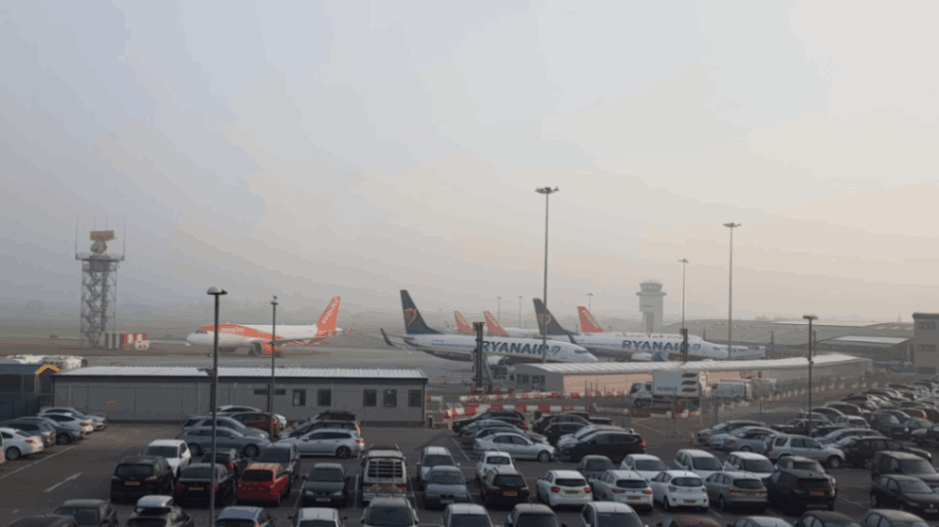Contents
Today’s world is full of surprises for all. Everyone, whether individuals or companies experience a new trend each day. The companies are using technology to speed up their daily operations and to engage with the clients more effectively. Nonetheless, everything has a downside, and new tech is no exception. While firms are focused on creating ways to upgrade their business operations, scammers employ clever methods to accomplish their illicit goals. In the modern age, no sector is immune to fraud, and the travel sector is no exception.
It’s becoming quite simple to plan vacations digitally, but airports and resorts have recently reported increasing illegal activity. Several trends and scams have emerged in the travel company. To tackle possible online frauds, resorts and airports can use an AI-based service. Read the blog to discover the emerging travel frauds and solutions to help combat scams in the travel sector.
Types of Frauds in the Travel Sector
The following are among the most frequently reported airline and hotel frauds that should be tackled.
Payment Frauds
It is among the most prevalent travel fraud, particularly in resorts. Resorts are encountering a variety of concerns because of fake travel services. Tourists enter with counterfeit hotel reservations, leaving the administration to bear the financial strain. They could lose a lot of clients and tarnish the brand image. Malicious actors also use chargebacks to get free hotel accommodation. Paying with bogus or fraudulent debit/credit cards is very widespread in this industry, in addition to the aforementioned payment concerns.
Money Laundering
The practice of masking unlawfully gained money is termed money laundering. Placement, layering, and integration are the basic stages that launderers can get through. Hotels are the breeding ground for those fraudsters who layer cash in different sectors. To avoid ill-gotten money entering hotel accounts, the administration needs to detect laundered money fastly. Money launderers, on the other hand, hide black money using a fake identity. So, to combat clever money launderers, airports require extra security inspections.
Identity Theft
Customers want everything to be online these days. The travel sector is working hard to satisfy clients from document fraud. It does, however, give imposters chances to carry out their wicked schemes. With the advent of digital check-ins, users could avoid the inconvenience of conventional booking and “over-the-counter” payments. They do not have to visit the front desk for collecting their rooms’ keys. The technology that helps clients with wonderful client engagement is also being exploited by fraudsters to generate fake identities and steal others’ personal details. The obtained personal data is then exploited to obtain loyalty cards and other perks, making the restaurant manager vulnerable to chargebacks as well as other frauds.
The same issue arises for airport employees. Many offenders escape after doing all the heinous acts because they have forged IDs and passports and there are no rigorous verification measures in place.
Facial Recognition- A Great Bet to Fight Frauds
Fraudsters exploit the travel sector to carry out their malicious activities which the industry deals with a slew of issues. The sector does not only face financial loss but also suffer from reputational damage and distrust of its clients. Just how do you regain your losses if you were in the aviation or hotel industry? Yeah, it’s a tricky question. You might not be able to recoup from the damage, thus a strong biometric identification system is necessary to keep fraudsters at bay. One approach to battle fraudsters and protect resorts and airlines is to use facial verification systems. Investigators will be able to recognize fraudsters before they create any trouble by conducting face checks at airports and resort entrances.
How Does Facial Recognition Work?
In the modern environment, facial recognition encompasses much more than merely detecting faces. Artificial intelligence algorithms which now have been introduced into the software allow it in detecting scammers within a minute. For improved verification results, the face recognition software employs a variety of AI algorithms and incorporates the following methods:
- 3D mapping
- Micro-expression analysis
- 3D depth analysis
- Liveness detection
- Skin texture analysis
All the aforementioned verification processes ensure that the client and passengers are there in-person to verify them more appropriately. As deep fakes and other kinds of frauds are prevalent in this digital age, facial recognition is a great bet for travel and other sectors to keep fraudsters away.
Final Thoughts
It is not only companies that are greatly benefitted from the technological advancements, but criminal activities have also risen dramatically. There is no doubt that the travel sector has automated its operations, the inefficient document verification services are hindering the safety of their clients. Face recognition is among the methods that this sector can implement to combat travel frauds and provide more robust security. Spoof attacks, fabricated identities, and deep fakes are all checked in real-time by the face verification system. Thus, scammers have no option to escape the country to accomplish their wicked desires.




